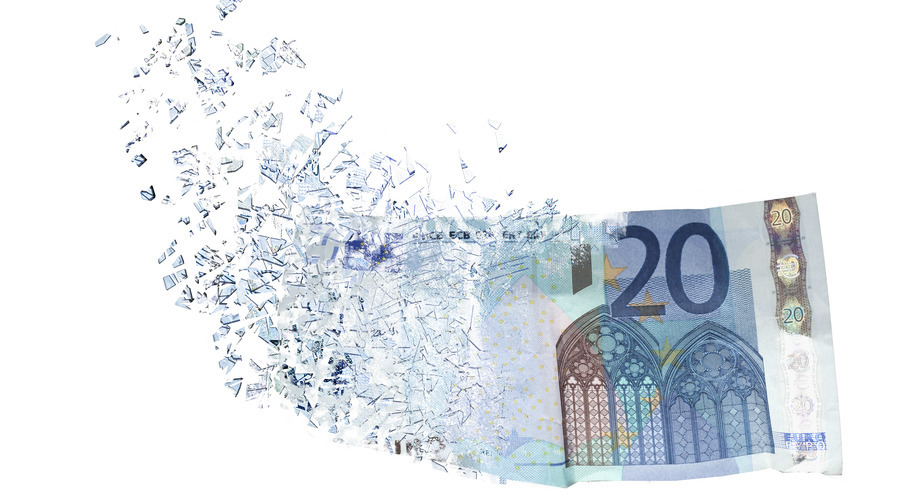1. Do car dealers owe a fiduciary duty to customers when arranging their finance?
No. The Supreme Court ruled that motor dealers do not owe fiduciary duties to customers when arranging finance packages. The Court emphasised that motor broker dealers are an “arm's length party to a commercial negotiation pursuing its own separate interests”. Indeed, the Court noted that each party in what it characterised as the “three-cornered” transaction was “in the pursuit of a separate commercial objective of their own”. (para 268). While the dealer may assist in securing finance, this activity is “ancillary” to the car sale and does not involve an “undertaking of undivided loyalty” to the customer. The Court drew similarities between the role of a waiter recommending a wine or a sales assistant advising on the attractiveness of a garment, or a search engine. The Judgment states “No reasonable onlooker would think that, by offering to find a suitable finance package to enable the customer to obtain the car, the dealer was thereby giving up, rather than continuing to pursue, its own commercial objective of securing a profitable sale of the car” (para 277).
2. When does a fiduciary duty arise?
The Court restated the classic test for an ad hoc fiduciary duty set out in Bristol and West Building Society v Mothew [1998] Ch 1, 16. In particular, it rejected the Court of Appeal’s approach to assessing fiduciary duties as being concerned with the customer’s perception, vulnerability or needs. It set the test for fiduciary duty arising on an ad hoc basis as an analysis of what the putative fiduciary has “undertaken” expressly or by their conduct. It said in particular:
- “… the vulnerability which is the typical characteristic of a person to whom a fiduciary duty is owed, is a consequence and not a cause of a fiduciary relationship”. (para 108)”
- “The fiduciary relationship, if it is to exist at all, must accommodate itself to the terms of the contract so that it is consistent with, and conforms to, them. The fiduciary relationship cannot be superimposed upon the contract in such a way as to alter the operation which the contract was intended to have according to its true construction.” (para 103 quoting Kelly v Cooper [1993] AC 2025)
- “An element of trust and confidence is a widespread feature of many types of commercial transactions, far removed from any fiduciary content.” (para 283)
- “In a commercial setting the task is to find in a particular context the boundary between normal (self-interested) arm's length activity and the circumstances in which equity recognises fiduciary duties of one of the commercial parties requiring that party to put aside his or her own interests and act altruistically in the interests of another." (para 83)
- “In Arklow Investments Ltd v Maclean [2000] 1 WLR 594, 600 the Judicial Committee of the Privy Council treated a relationship of trust and confidence as something that would arise out of an undertaking by the supposed fiduciary of an obligation of loyalty." (para 95)
3. Does the law recognise a distinct tort of bribery?
Yes. The Court affirmed the existence of a distinct tort of bribery, rejecting arguments for its abolition on the basis that there is a strong public policy and deterrence reason to keep the law of bribery. It also held that there should continue to be an irrebuttable presumption that the remedy for a bribe is for the briber to repay the full amount of the bribe, and not to require the claimant to the “difficulty and expense of establishing” “precisely how the briber has been factored into the briber’s gain” (paragraph 234).
4. What relationship must exist for the tort of bribery to apply?
The Court clarified that liability for bribery arises only where the recipient of a payment owes a fiduciary duty of loyalty to the claimant, as per the test set out above (or arising from one of the established category of fiduciary duties). The Court rejected the concept of a "disinterested duty" (as suggested in Wood v Commercial First Business Ltd [2022] Ch 123) as insufficient to engage the tort of bribery. In this case, as set out above, no such duty arose because dealers acted in their own commercial interests throughout the transaction. As a result, the tort of bribery was not engaged.
5. What level of disclosure prevents liability for bribery?
Quoting earlier case law the Court held that the principal’s “knowledge and consent” is necessary. It held that this meant that the principal (customer’s) “fully informed consent” must be obtained, and that this would involve providing the customer full disclosure of all material facts. The burden is on the payer of the commission or its recipient to prove that full disclosure was made. The Court said: “it is not enough to place the principal on enquiry.” Partial disclosure could therefore be considered to be insufficient going forward, replacing the line of “half secret”, or what the Court of Appeal termed “partial disclosure” case law.
6. Was the relationship between Mr Johnston and FirstRand unfair under CCA s140A?
Yes. The Court upheld Mr Johnson's claim under section 140A of the CCA, finding that the relationship between him and FirstRand was unfair. However, the Court rejected many of the findings of the Court of Appeal. The Court held the relationship between Mr Johnston and FirstRand was unfair due to:
- The high commission paid to the dealer (£1,650.95, representing 55% of the total charge for credit).
- The concealment of the nature of the commercial tie between the dealer and the lender, which required the dealer to refer all business to FirstRand first in contrast to the documentation which said that the dealer would select from a panel of lenders.
- Mr Johnson was unsophisticated and the Court questioned the extent to which he could have reasonably been expected to have read and understood the documents particularly where no prominence was given to the relevant statements.
The Court ordered FirstRand to pay Mr Johnson the amount of the commission, plus interest, as a remedy under section 140B of the CCA.
The Court made it clear that when assessing unfairness under section 140A of the CCA, there is no set checklist. “The application of the test [for unfairness] in each case will inevitably, be a highly fact sensitive exercise”. The Court noted that the use of discretionary commission models is not inherently unfair. Instead, the customer must be able to show how those features contributed towards an overall unfairness in their specific case. The Court endorsed the five factors the FCA have adopted in relation to unfairness but stressed this is not exhaustive list. Instead, the Court held the following factors will normally be relevant when considering unfairness:
1. The size of the commission relative to the charge for credit;
2. The nature of the commission (because for example, a discretionary commission may create incentives to charge a higher interest rate);
3. The characteristics of the consumer;
4. The extent and manner of the disclosure; and
5. Compliance with the regulatory rules.
While the judgment provides clarity on fiduciary duties and the tort of bribery in respect of broker-dealers, some areas remain unresolved:
- Knowledge of the fiduciary relationship: This needs to be established for the party paying to commission to be liable in bribery. The judgment is not clear on what level of knowledge is required by the lender to found a claim in bribery. Previous case law needs to be considered in order to flesh out this test, including Logicrose v Southend United Football Club Ltd.
- Disclosure standards for obtaining fully informed consent to avoid liability for bribery or dishonest assistance in a breach of fiduciary duty: The Court reaffirmed that full disclosure of material facts is required in order to obtain fully informed consent should a fiduciary duty be found but left open what constitutes "material" in each case. There is previous case on this which may be of assistance (see para 208 onwards).
- Unfairness under the CCA: How are the County Courts and the FCA in its redress scheme going to interpret the Supreme Court’s decision on unfairness? Whilst the Supreme Court makes it clear other factors can be considered it gave two relatively narrow determining factors which are unlikely to be present in the majority of cases. There is recent case law on interpreting the other factors, including in relation to commission, which can flesh out analysis. Care also needs to be taken on the precise scope of s140A.
- The status of Medsted: In Medsted Associates Ltd v Canaccord Genuity Wealth (International) Ltd [2019] EWCA Civ 83 case, an investment broker was found by the Court of Appeal to owe a fiduciary duty, but the scope of that duty was found not to include an obligation to disclose commission. The reason given by the Court was that the customer was sophisticated and so would have known the broker was paid commission and could have asked. The status of this “narrow duty” construction is not immediately clear in light of the Supreme Court’s approach to bribery and dishonest assistance - that consent must be fully informed and all of the material facts must be disclosed.
- The Supreme Court’s warning to CMCs: In his oral statement handing down the judgment on Friday 1 August 2025, Lord Reed made the following comments which do not appear in the Supreme Court's written summary or judgment “In the period since the Court of Appeal's decision, claims management companies have encouraged anyone who bought a car on hire purchase or with a PCP to sign up with them and no doubt a great many people have done so under the impression they have a valid claim. But it was too early to form any view as to whether a valid claim lay on the basis of the Court of Appeal's decision as the decision was under appeal and it was only once this court had decided the appeal that it would become clear whether the Court of Appeal had decided the cases correctly or not”. The FCA has also issued a letter to CMCs that they regulate raising concerns about their financial promotions and reminding them of their obligations under CMCOB chapter of the FCA Handbook and Principle 12. The SRA has also issued a statement “warning” claimant law firms about their conduct in relation to motor finance. Nikhil Rathi has mentioned in radio interviews that consumers do not need CMCs or claimant law firms to participate in redress, and that they take up to 30% of redress owed to customers. We may see further intervention from regulators to pre-empt future conduct issues, which would be preferable to waiting until after damage has been caused to customers and firms. On Friday 8 August the SRA also issued a statement to law firms setting out what it expects them to do when advising clients in relation to the Judgment, including bringing their attention to the FCA redress plans. This statement is worth considering in correspondence with claimant law firms.
The Supreme Court's decision provides much-needed clarity on the legal duties of motor dealers and lenders in hire purchase transactions following the Court of Appeal judgment. While the Supreme Court rejected claims based on fiduciary duties and bribery, it emphasised the importance of fairness and transparency under the CCA. Firms will want to consider a proportionate response to the judgment but bearing in mind the propensity of these issues to morph over time beyond the scope of the judgment itself.
Firms may want to consider the following practical steps:
- Approach consideration of the case from a governance and risk management perspective, documenting appropriate consideration of the impact and, where firms are authorised by the FCA, demonstrating that SMFs have taken “reasonable steps” in response to it.
- Segmenting books into similar type categories (such as credit versus hire; regulated versus unregulated; dealer-broker versus bare broker) and understanding the impact on those books of each of the key legal risks, including: fiduciary duty – bribery – s140A – FCA redress scope. This will help categorise risk.
- All firms involved in the sales process, including brokers, should consider what documentation they have available and be ready to explain to the FCA what reasons there are for any gaps (such as GDPR compliance) and review their processes and disclosures in light of the judgment.
- If you are impacted by redress it is worth reading the FCA’s two statements published on Sunday 3 August and the transcript of their call with analysts to understand more about their planning for a redress scheme. The FCA has indicated, for example, that it is looking at using a combination of powers (likely s404 FSMA and their powers to amend the DISP rules) so that the redress plans will date back to 2007, since their s404 FSMA power only dates to 2014.
- The FCA’s statements indicate that the proposals could potentially include firms reviewing both DCA and non-DCA motor finance arrangements. The FCA has however pointed out that it may not apply the same calculation of redress as the Supreme Court (payment of commission to the customer). They have also indicated that they will apply interest of base rate plus 1% to redress rather than the 8% figure in line with the FOS announcement that it will abandon the 8% interest figure from 1 January 2026.
- Engage with the FCA on their redress proposals both before and after their consultation paper is issued. In particular, the FCA has said that it wants to design a scheme that is “operationalizable” and does not require manual review of every case. It will be important to identify for them what operationalisation means in practice and how it can be managed effectively. At AG we have been working closely with our tech team to design a demo of our end-to-end redress platform which automates key data point extraction and assessment using decision logic tech, provides instant visual MI and populates customer redress contact templates.
For more information on our automated motor finance redress platform, see our webpage or contact us here.
If you would like to discuss this further, please reach out to any of the authors at the top of the page.







